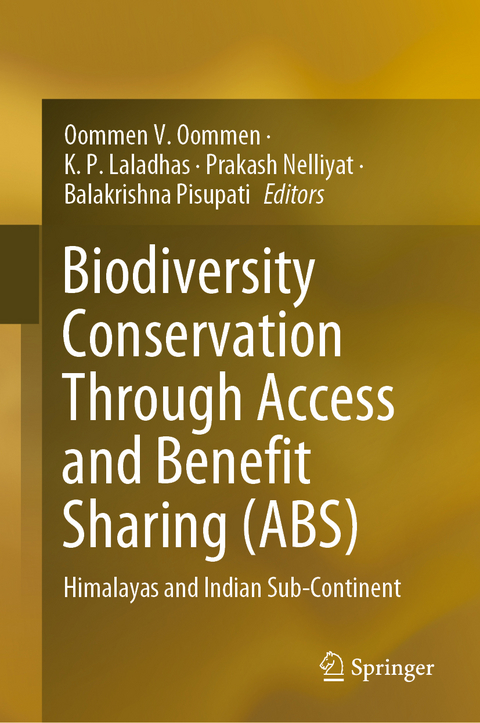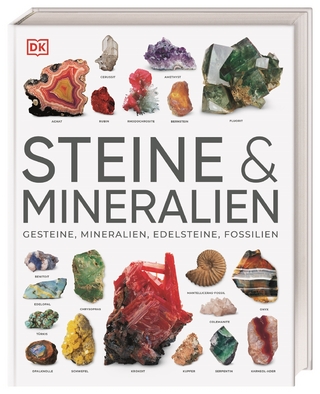
Biodiversity Conservation Through Access and Benefit Sharing (ABS)
Springer International Publishing (Verlag)
978-3-031-16185-8 (ISBN)
This book deals with the economic potentials of biodiversity and its capacity to support its own conservation aiming to provide livelihood for millions engaged in conservation, both now and for future generations. The book highlights the potentials of natural resources which are characterized as capital wealth (as defined in Convention on Biological Diversity (CBD)), to finance its own conservation and to provide livelihood means to people who conserve it.
The book is divided into five Parts. PART I explains about the Premise of Access and Benefit Sharing (ABS), PART II describes about the Technology Transfer, PART III will provide details about the Access to Genetic Resources and to Associated Traditional Knowledge and Benefit Sharing PART IV is the Implementation of ABS Mechanisms and PART V is about ABS and Its Economics.
This book will be of interest to biodiversity policy makers, administrators, university and college students, researchers, biodiversity conservationists.lt;br> Dr. Oommen V. Oommen is an eminent biodiversity conservationist with several years of experience as a teacher, scientist and a policy maker. He has more than 40 years of teaching experience. He was Dean, Faculty of Science, Professor and Head, Department of Zoology, University of Kerala, India and CSIR Emeritus scientist. He served as Chairman of Kerala State Biodiversity Board and during this period he had been responsible for bringingabout policy decisions to enable the conservation and sustainable use of biodiversity. As recognition of his outstanding research contribution in caecilian biology and molecular taxonomy, Scientists from Natural History Museum, London has named a caecilian amphibian, Uraeotyphlus oommeni, in his honour. He has published over 170 research papers, 15 book chapters, 20 Gen Bank submissions, edited four international books in the last seven years and published several popular science articles.
Dr Laladhas K P is the former Principal at St Stephen's College, Pathanapuran, Kollam, Kerala is an eminent academician and researcher in various disciplines of life science. He has 26 years of meritorious academic service in higher education teaching. His areas of research are conservation of biodiversity, bio-prospecting, molecular characterization and biological assays. He has completed different major and minor research projects funded by the Department of Science & Technology, the Government of India and the University Grants commission. He has also worked on consultancy projects funded by the UNDP and National Medicinal Plant Board.
Three International Books have been edited; one book was published by Springer International and two by Bentham Publishers. More than sixty-five research publications were published in peer-reviewed International and National Journals. He has also authored seven books in the area of Environment & Biodiversity and been published by National Publishers. He served Kerala State Biodiversity Board as its Member Secretary for more than five years. His expertise has been registered in the academic and administrative committees of different Universities in Kerala. He has also functioned as an Expert member in the different policy-making committees of the National Biodiversity Authority, Government of India and Government of Kerala. He has also worked as an expert member of Kerala Coastal Zone Management Authority, Ministry of Environment and Forest, Government of India, and Member of the working group on Biodiversity constituted by Kerala State Planning Board for the 13th Five-year plan.
Dr. Prakash Nelliyat is a Key Expert (Economist) in the Monitoring and Evaluation team of the World Bank sponsored Tamil Nadu Irrigated Agricultural Modernization (TNIAM) Project at Centre for Water Resources, Anna University Chennai. Previously he worked as Subject Expert (Economic Valuation of Tradable Bio-resources in Kerala) in the Rebuild Kerala Inetiative Programme at the Kerala State Biodiversity Board; Consultant (Biodiversity Finance Initiative) at the UNDP; Fellow, Access and Benefit Sharing (ABS), at the Centre for Biodiversity Policy and Law, Chennai, where he involved in research on various issues on ABS. He also worked as Environmental Economist (valuation of biological resources) at the National Biodiversity Authority; Research Coordinator for 'South Asian Integrated Water Resources Management Programme' at the Centre for Water Resources - Anna University; and as 'Research Associate' at Madras School of Economics and Madras Institute of Development Studies.
Prakash has more than 25 years research and teaching experience in Water Resources Issues, Environmental Economics, Biodiversity and Natural Resources Management and received IWMI-TATA Water Pol
Chapter 1. Convention on Biological Diversity, Lessons from its Three Decades Journey.- Chapter 2. Implementation of the Nagoya Protocol in India: Experiences, Challenges and Learning's.- Chapter 3. Achievements in India's ABS Mechanism.- Chapter 4. Statutory and Obligatory Responsibilities of State Biodiversity Boards for the Conservation of Indigenous Biodiversity and ABS.- Chapter 5. ABS of Biological Resources and associated Traditional knowledge: A Multi -tiered Responsibility".- Chapter 6. Intellectual Property Right (IPR) and ABS: Need for Universal Accountability and Monitoring.- Chapter 7. Traditional Knowledge (TK) and ABS in the context of Himalayan States.- Chapter 8. ABS in Indigenous knowledge Stewardship and Sustainable Development.- Chapter 9. Access and Benefit Sharing; Agro-biodiversity and Farmers rights on seeds- The case of indigenous rice varieties of Wayanad, Kerala, India.- Chapter 10. Insects and ABS.- Chapter 11. Access and Benefit Sharing, Marine Genetic Resources and Aquaculture:The Indian Scenario in Blue Economy Paradigms.- Chapter 12. A revisit to Access and Benefit Sharing (ABS) with reference to Aquatic Bio-resources.- Chapter 13. Strengthening ABS Implementation in India.- Chapter 14. Biological Diversity Act and Enforcement Challenges in India.- Chapter 15. Is ABS an Innovative Financial Mechanism for Biodiversity Conservation.- Chapter 16. The Economics of Ecosystem and Biodiversity (TEEB) in ABS perspective.- Chapter 17. Institutions and incentives to facilitate Indigenous and local people participation in the ABS regime in India.- Chapter 18. ABS; Scope of Indian Medicinal Plants.- Chapter 19. Biological Diversity Act versus other Environmental laws in India.- Chapter 20. The Need for a Nagoya Protocol 'Plus'.
| Erscheinungsdatum | 20.01.2023 |
|---|---|
| Zusatzinfo | XXVII, 370 p. 36 illus., 33 illus. in color. |
| Verlagsort | Cham |
| Sprache | englisch |
| Maße | 155 x 235 mm |
| Gewicht | 718 g |
| Themenwelt | Sachbuch/Ratgeber ► Natur / Technik ► Natur / Ökologie |
| Naturwissenschaften ► Biologie ► Ökologie / Naturschutz | |
| Naturwissenschaften ► Geowissenschaften | |
| Schlagworte | ABS • Access and Benefit Sharing • Biodiversity Economics • biological diversity • conservation • Nagoya Protocol • traditional knowledge |
| ISBN-10 | 3-031-16185-8 / 3031161858 |
| ISBN-13 | 978-3-031-16185-8 / 9783031161858 |
| Zustand | Neuware |
| Haben Sie eine Frage zum Produkt? |
aus dem Bereich


